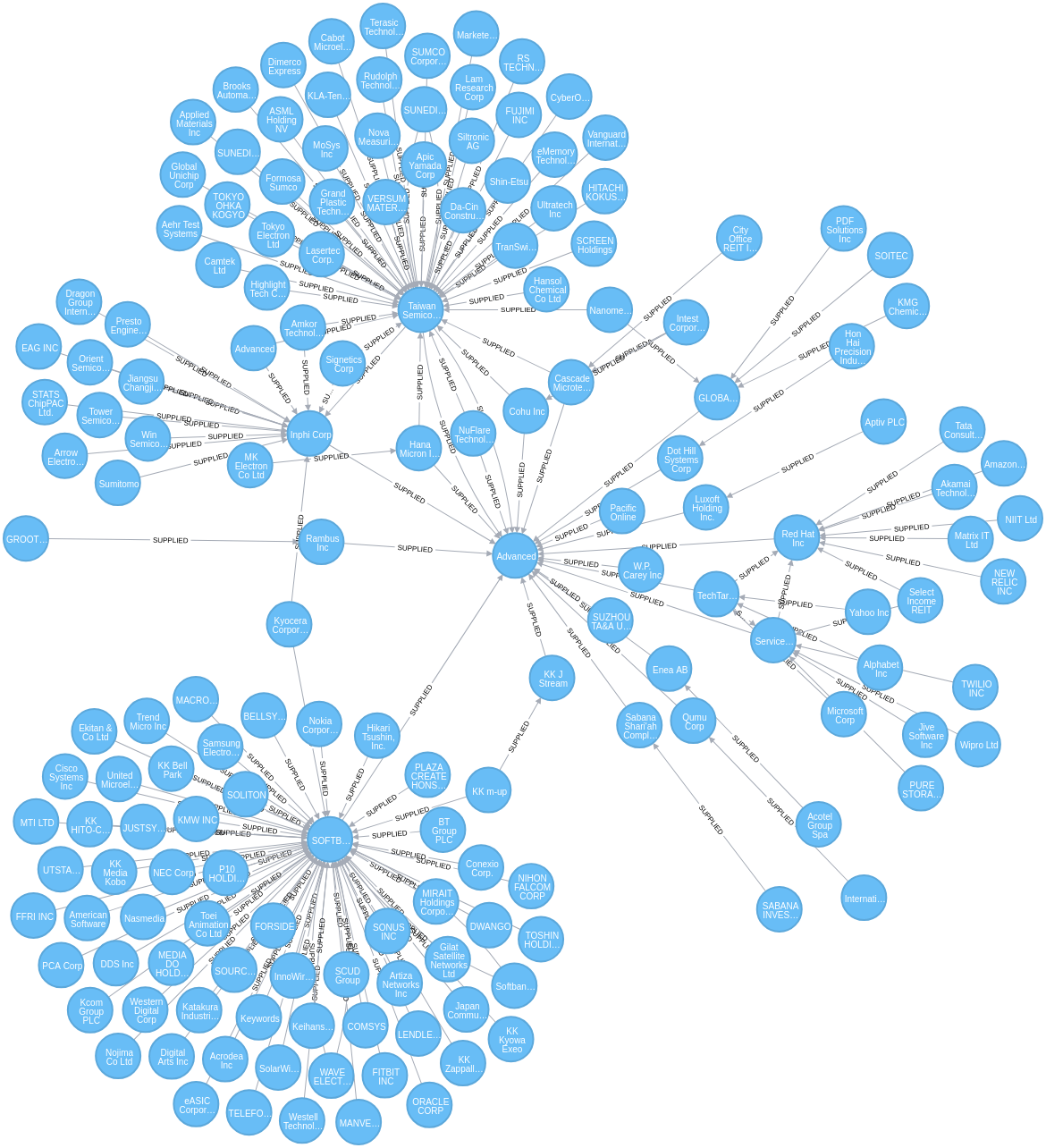docker run \
--publish=7474:7474 --publish=7687:7687 \
--volume=/tmp/neo4j/data:/data \
--volume=/mnt/ext_stor/Revere:/var/lib/neo4j/import \
--env=NEO4J_dbms_memory_pagecache_size=4G \
--env=NEO4J_dbms_memory_heap_max__size=8G \
neo4j:latestN.B. The data files are stored in the location specified in the docker invocation above. Additionally, the nodes and relationships have been preprocessed according to the notebook Preprocessing of Revere Data.ipynb.
USING PERIODIC COMMIT
LOAD CSV WITH HEADERS FROM "file:///companies_recent.csv" AS row
CREATE (:Company {startTime: date(row.start_), endTime: date(row.end_), revId: toInteger(row.id), name: row.name, ticker: row.ticker, investor_contact: row.investor_contact_name, cusip: row.cusip, isin: row.isin});create index on :Company(revId);
create index on :Company(ticker);USING PERIODIC COMMIT
LOAD CSV WITH HEADERS FROM "file:///rels_start_end.csv" AS row
MATCH (supplier:Company {revId: toInteger(row.supplier_id)})
MATCH (customer:Company {revId: toInteger(row.customer_id)})
MERGE (supplier)-[:SUPPLIED {startTime: date(row.start_), endTime: date(row.end_)}]->(customer);For example, get the tier one through two supply chain for AMD:
MATCH p = (co:Company {ticker: 'AMD-US'})<-[:SUPPLIED*1..2]-(sup:Company)
where ALL(rel in relationships(p) where rel.startTime < date('2017-01-01') and rel.endTime >= date('2017-01-01'))
unwind nodes(p) as n
with p, collect(distinct n) as allNodes
unwind relationships(p) as allRels
return allNodes, allRels